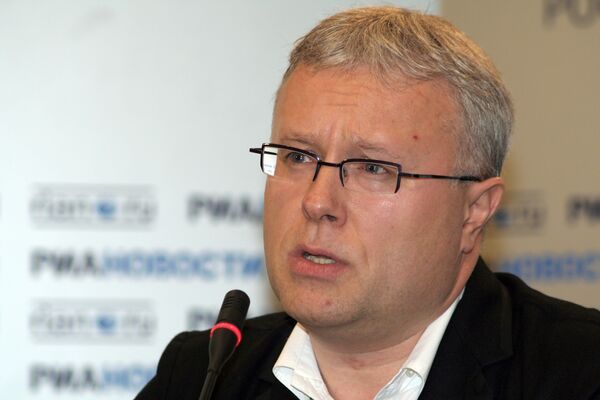MOSCOW, June 27 (RAPSI) – Keira Knightley, Elton John and Hugh Grant were among the international celebrities who provided character references for the trial of Russian multi-millionaire Alexander Lebedev in Moscow on Thursday, while a Russian writer added his voice to the proceedings in the form of a poem.
The former billionaire is charged with hooliganism and battery after punching fellow tycoon Sergei Polonsky during the filming of a talk show on the NTV TV channel back in 2011. He has not admitted his guilt and says the charges are unsubstantiated.
British actor and writer Stephen Fry said he had watched a video of the incident online and believes it is not something that should be punished harshly.
US actor John Malkovich asked Moscow’s Ostankinsky District Court to show leniency toward Lebedev, to view the punch as an unguarded act in response to a flagrant provocation, and to release Lebedev so that he can continue his good work.
Testimonials read out in the court were provided by actress Keira Knightley, musicians Elton John and Sting, actors Hugh Grant and Kevin Spacey, and Rev. John Hall from Westminster Abbey, as well as from Russian actress Chulpan Khamatova and other celebrities.
Russian writer and poet Dmitry Bykov provided a testimonial in verse, in which he said that Lebedev was "partly right" to hit Polonsky.
Maj. Gen. Yury Kobaladze, a retired officer of Russia’s Foreign Intelligence Service, described Lebedev – a former KGB officer – as "a cultured and well-mannered man."
The initial charges against Lebedev were made last September, more than a year after he punched Polonsky. The scuffle ensued after Polonsky accused Lebedev of spreading a rumor about a crack in the Moscow City skyscraper that his firm was building.
Polonsky, who is on Russia's wanted list over an alleged property fraud in Moscow, has not given evidence in person at the trial.
Lebedev, 52, is the co-owner of the Kremlin-critical Novaya Gazeta newspaper in Russia and the owner of British newspaper The Independent. He has also supported a program to raise funds for opposition figurehead Alexei Navalny's anti-corruption project RosPil. He has made repeated claims of a government persecution campaign against his business, a charge the authorities deny.
Last December, Polonsky himself ended up in another fracas in Cambodia, when he and two other Russians allegedly attacked local sailors during an outing off the Cambodian coast. The sailors later dropped their charges.
The three men were arrested on December 31 and remained in the custody of the Cambodian police. On April 3, Polonsky was released from the Cambodian prison but was ordered not to leave the country.
However, he is widely reported to have moved to Israel.


